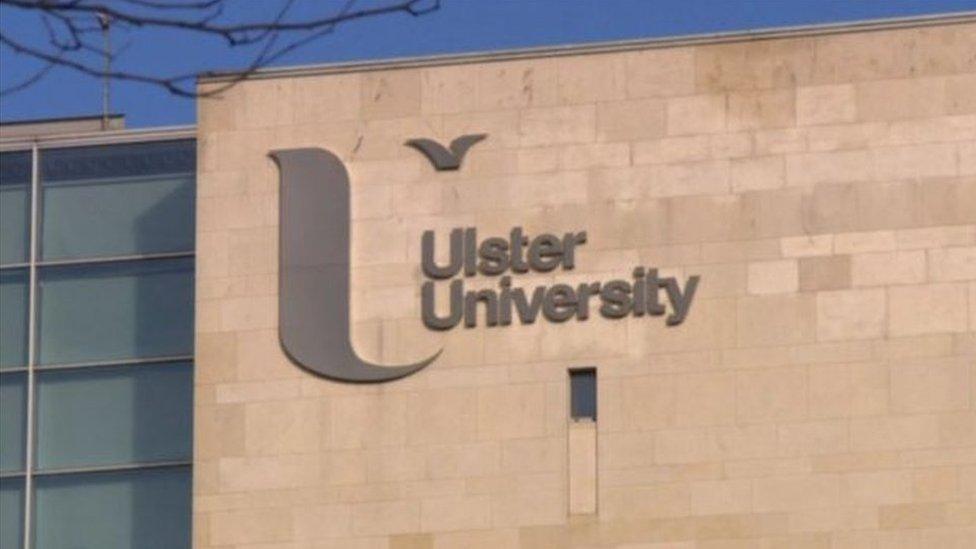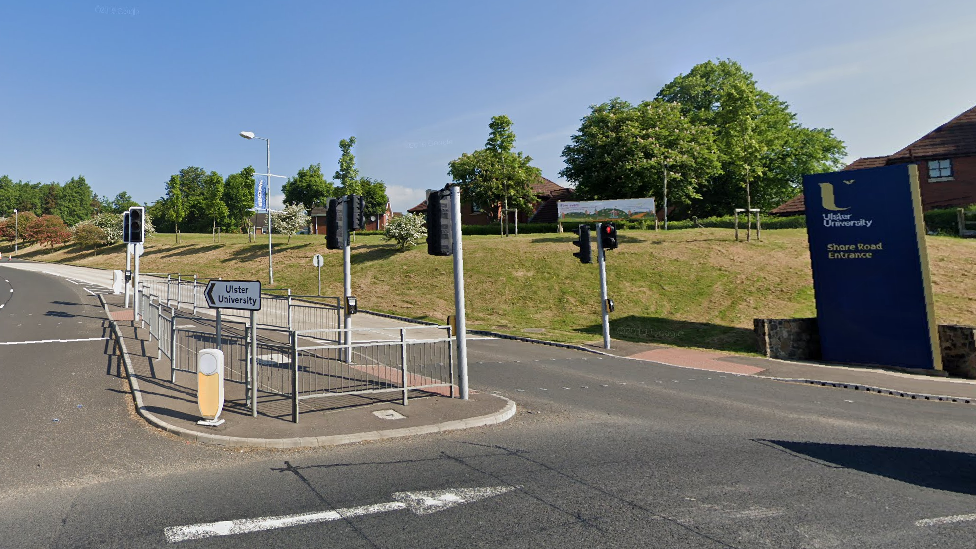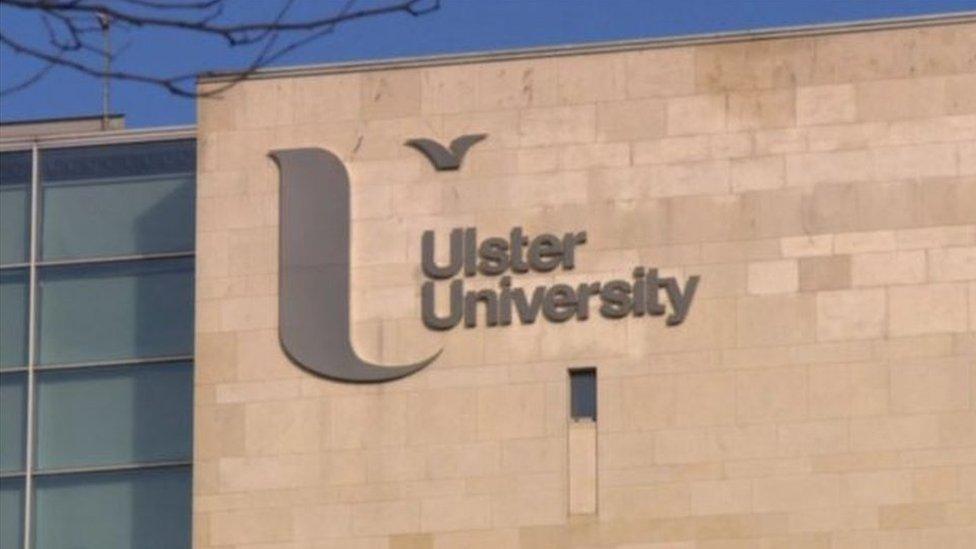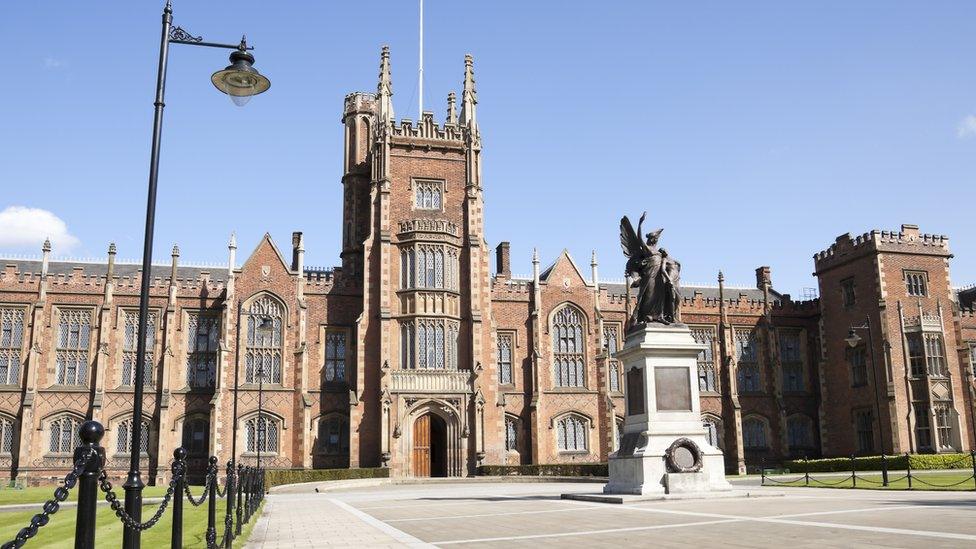Coronavirus: Ulster University may have to reduce staff costs
- Published

Ulster University (UU) may have to reduce staff costs as part of "difficult decisions" over its financial sustainability.
That is according to an email to all staff from the interim vice-chancellor.
Prof Paul Bartholomew said the university had to consider the implications of the coronavirus pandemic "within the context of our already stretched financial position".
A trade union said it would "fight to defend jobs and future prospects".
Prof Bartholomew had previously told MLAs that UU was facing losses of £64m over three years.
At the same committee hearing, the vice-chancellor of Queen's University, Prof Ian Greer, said that it could face up losses of up to £80m in a worst case scenario.
Other universities across the UK have also warned that the pandemic will have severe financial consequences.
In the email to staff at UU, Prof Bartholomew said the economic damage of the pandemic "is now becoming clear with historic falls in GDP and catastrophic impacts on aviation, oil and other industries".

Prof Bartholomew said it is "truly an unprecedented time"
"We continue to closely monitor the financial trends and outlook to build a sustainable financial strategy that must address not only the financial impacts of Covid, but also the pre-existing challenge of a cost base that has grown, whilst income from [the] government block grant and fees from capped student numbers have remained largely flat."
Prof Bartholomew told staff that, as a result, a number of options to save money had been identified.
"Representing nearly 60% of our total cost base, those options necessarily include staff cost reduction measures," he continued.
"A full strategic review is also proposed to enable clarity around strategic priorities and associated resource allocation.
"We understand that across the institution staff are already operating at full stretch and any decision made to achieve sustainability must, in parallel, address issues of workload and prioritisation."
Prof Bartholomew said that he and the senior leadership team had to secure the financial sustainability of the university, and had engaged with the Department for the Economy and trade unions.

Ulster University has campuses in Belfast, Coleraine, Jordanstown and Magee
"This is truly an unprecedented time for individuals and organisations across the world as we begin to imagine a new normal, but despite those challenges, it is essential that we quickly adjust and begin to contemplate the difficult decisions that will need to be made," he said.
He ended by thanking staff for their commitment and professionalism and said he would keep them informed.
'We will fight'
Paddy Mackel of the University and College Union (UCU), which represents many staff, said they were aware of the issues facing the university.
"In discussions with the university, UCU has made it clear that while the union will continue to engage with the employer in a constructive manner regarding the scale and breadth of funding difficulties, we will not tolerate redundancies, attacks on terms and conditions or a diminution of the availability of courses for students to pay for the present crisis," he said.
He added: "This is a time for government to put resources into properly funding universities to build for the future, not simply in terms of the economy but also in respect of a broader commitment to third level education itself.
"The assembly at Stormont also has a responsibility to resolve the anomaly around the recurring cost of providing a multi-campus experience for students and the wider community."
Both Queen's and Ulster universities have previously said that there has been a significant real terms reduction in university funding in Northern Ireland over the past decade.
- Published27 May 2020

- Published26 May 2020
